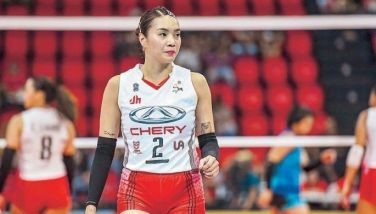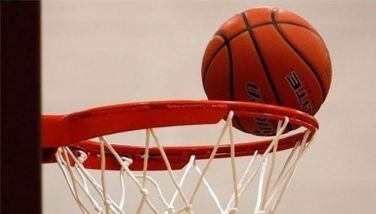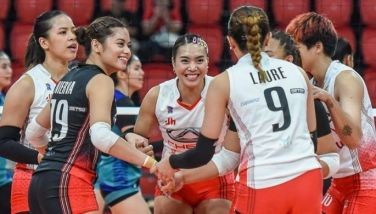Secrets of PBA greats
What inspires greatness? What motivates those who rise above the crowd and achieve singular distinction in their fields? In the course of shooting a new international documentary, I’ve interviewed practically all the great men and women who have been part of the growth of the PBA. We plumbed their deepest thoughts and emotions about how special the league has been, and how keenly aware they were that they have been part of something special.
We begin with Tim Cone, the most successful coach in PBA history. A writer himself, Tim is acutely aware of the legacy he is carrying on, and the significance of being a PBA player, a message of humility he conveys to his players constantly.
“There’s no person in the country that doesn’t know what’s going on in the PBA,” says Cone, who is two wins away from winning another Grand Slam, this time with San Mig Coffee. “You’re part of those 120 PBA players. And think of the 90 million, 95 million that are here. And all of them would love to be you. And there’s not a person out there who doesn’t dream or a young kid dreaming about being Johnny (Abarrientos) or Mark (Barroca) or Jason (Castro) or Jimmy (Alapag). And they see those guys and they see the possibility.”
1978 PBA Mythical Team member Danny Florencio, who was never interviewed until approached by this writer, talks about what it took to be the trailblazer for all those aforementioned all-time great little guards.
“If you’re afraid of getting hurt, it’s like nothing will happen with your game,” says Florencio, considered by some the greatest individual talent in PBA history. “You need to be fierce and not bow down to anybody. Don’t be afraid even if the player you’re up against plays dirty.”
Allan Caidic, who holds many league scoring records, adds the powerful connection between players and the ordinary Juan Dela Cruz.
“You see, the people idolize the players like movie actors too,” says the Triggerman. “It seems they can relate probably to the hardships of a basketball player, the practice every day, sacrificing yourself and sometimes getting injured or getting sick just to help the team win. Maybe they translate that to their own lives.”
League pioneer Atoy Co recalls the frenzy whenever the league’s first two great rivals would meet.
“Once Crispa and Toyota would face each other, it’s just like Pacquiao having a fight,” says the PBA’s Fortune Cookie. “If you have a ticket, you go to Araneta. If you’re out on the street, where do you go? You go to the appliance store. You can see people there watching Crispa-Toyota, right? And then there was really less crime also.”
On the other side of the fence, four-time MVP Mon Fernandez says playing in the PBA for 20 years gave him the chance to live his dream.
“It was really the passion to be the best I can be, no,” says Fernandez, now a successful businessman in Cebu. “Practice was the key. You couldn’t do something in a game if you didn’t do it in practice. That’s why I always did my best in practice.”
One-time PBA Most Valuable Player Ricardo Brown breaks down the mystique of the PBA.
“It involves passion, and dedication, commitment, and inspiration,” says the Quick Brown Fox. “It’s not just sports entertainment, it’s the way of life. It’s something that they eat, sleep, drink and breathe. It’s something that the Filipino basketball fan embraces but claims as our game and I think that’s when we look at the PBA in respect to the description the PBA is the highest level that’s the ultimate for that game that we need so much.”
The same sentiment is echoed by former national team and Ginebra player Pido Jarencio, who comments on the league’s resiliency over the past four decades.
“The people, they love the PBA again, don’t they?” says the Globalport’s new head coach. “It’s set a record with the number of people who watch, which means the people coming from the office, the tricycle drivers, the vendors, they come home to watch or stop to watch the PBA. It is already part of the life of Filipinos, because they grew up with the PBA.”
Former Galerie Dominique team owner and former senator Nikki Coseteng puts it more succinctly.
“I think the PBA is already blood to the Filipino,” says the long-time educator. “It runs in your blood, it’s already part of our entire make-up.”
Alaska team owner Fred Uytengsu, whose abiding principle has always been winning the right way, puts an international and long-term perspective on how unique it is to be a winner in the PBA.
“People who don’t live in the Philippines don’t know or understand that this is as big as it gets,” says the triathlete and former national swimmer who started the tradition of giving players championship rings. “When you have your championship ring and 40 years from now and you’re a grandfather and your grandson is sitting in your lap... I mean how special is that to bring that multi-generational aspect, to do that and just look at the passion of the fans that come in, in a championship game and we’re now getting 25,000 and the Araneta is rocking. I mean it’s really quite special.”
Indeed. More thoughts of PBA greats in an upcoming column.
- Latest
- Trending




























